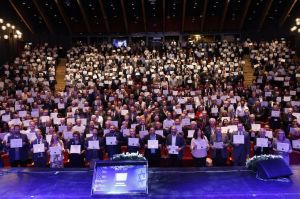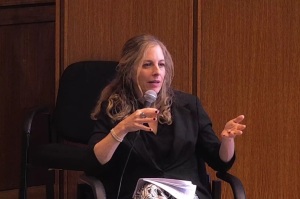BBC Report Recommends More Programming with 'Incidental Portrayals' of Homosexuals
A report commissioned by the British Broadcasting Corporation is encouraging the network to provide more "gay friendly" programming in order to remain inclusive to all of the media corporation's viewers.
The report used responses from homosexual organizations in the U.K., audience surveys as well as nine "LGB experts," and recommended that more programming spread across genres should showcase non-heterosexual people, in order for viewers to become familiar with LGB portrayals.
"The LGB [lesbian, gay and bisexual] experts feel that the BBC should seek to incorporate the portrayal of LGB people within programming targeted at children, to familiarize audiences through incidental portrayal from an early age," according to Clare Luke, of Solitaire Consulting, who wrote the report.
The report added that having positive experiences regarding LGB children broadcast on television programming will go to ease perceptions of LGB persons and will lessen feelings of isolation of some members of LGB community.
"As a public service broadcaster a standard bearer on moral issues, the BBC is asked to reconsider the way in which it is perceived to set up these debates with two extreme perspectives and to be more creative and nuanced in its presentation," Luke wrote in the report.
Contributors to the report state that the BBC is a national broadcaster and has an obligation to provide programming reflexive of the audiences' makeup.
"The BBC has a fundamental obligation to serve all its audiences. In fact, it's one of the BBC's public purposes to reflect the diversity of UK life," Tim Davie, acting director general and chair of the BBC Working Group which commissioned the report, said in a statement.
However, as part of the report a survey of 2,709 audience members were asked their feelings regarding of LGB portrayals on television and the survey showed that 25 percent of viewers felt there was too much coverage of LGB people on TV, specifically citing the portrayal of homosexual men.
In addition to those responses 20 percent of respondents felt that it was an unimportant issue, and 40 percent were indifferent to the portrayal of homosexual characters.
"Are soaps, watched by pre-pubescent children - who may still have some tattered remnant of innocence that we should cherish - really a proper platform for sexual propaganda and special pleading," Brian Sewell, a British television personality, told the Christian Institute.



























